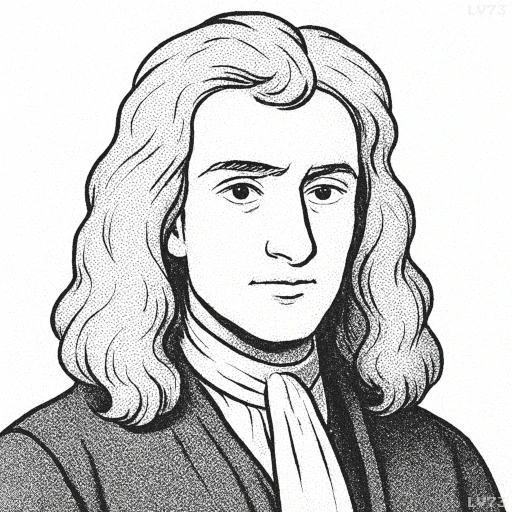“I do not love to be printed on every occasion, much less to be dunned and teased by foreigners about mathematical things or to be thought by our own people to be trifling away my time about them when I should be about the king’s business.”

- January 4, 1643 – March 31, 1727
- Born in England (UK)
- Natural philosopher, mathematician, physicist, astronomer, theologian
table of contents
Quote
“I do not love to be printed on every occasion, much less to be dunned and teased by foreigners about mathematical things or to be thought by our own people to be trifling away my time about them when I should be about the king’s business.”
Explanation
In this quote, Isaac Newton expresses a reluctance to engage in public discourse or be continually involved in the publication of his work, especially regarding his mathematical findings. Newton emphasizes that he does not enjoy being constantly printed or discussed in the public eye, particularly about his mathematical discoveries, which were groundbreaking at the time. He is also frustrated by the attention he receives from foreigners and the perception that he is wasting his time on intellectual pursuits rather than focusing on more practical matters, such as his duties to the king and his service to the country. This statement reflects Newton’s more reserved and private nature, as well as his preference for working in solitude rather than engaging in public debates or being distracted by external pressures.
Newton’s reluctance to publish and engage with others about his mathematical work is well-documented. He famously delayed publishing his Principia Mathematica, his most significant work on the laws of motion and gravitation, for years, despite having developed the ideas much earlier. His private nature and tendency to focus on personal research over public recognition were key aspects of his personality. Newton was also a public figure in other capacities, including his work as a warden and later master of the Royal Mint, where he was involved in overseeing the minting of currency and addressing issues of counterfeiting. He clearly saw these roles as important and did not want to be seen as neglecting his public responsibilities in favor of personal intellectual pursuits.
In modern terms, Newton’s sentiment speaks to the tension between public recognition and personal dedication to work. While he is now celebrated as one of the most influential figures in the history of science, his reluctance to seek fame or constantly engage with public discussions about his work is still notable. This view resonates with contemporary figures in various fields who, despite groundbreaking contributions, prefer to focus on their work rather than being drawn into the limelight. Newton’s remark reflects the struggle between the need for focus on one’s duties and the inevitable pressures of public scrutiny and recognition.
Would you like to share your impressions or related stories about this quote in the comments section?


